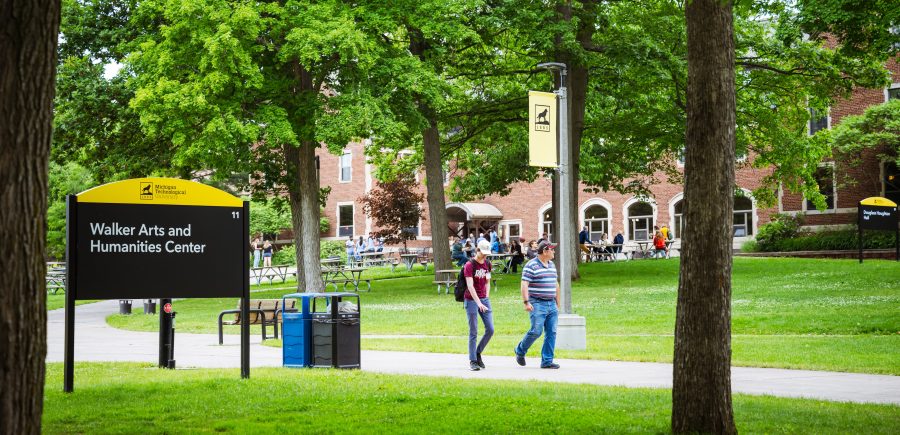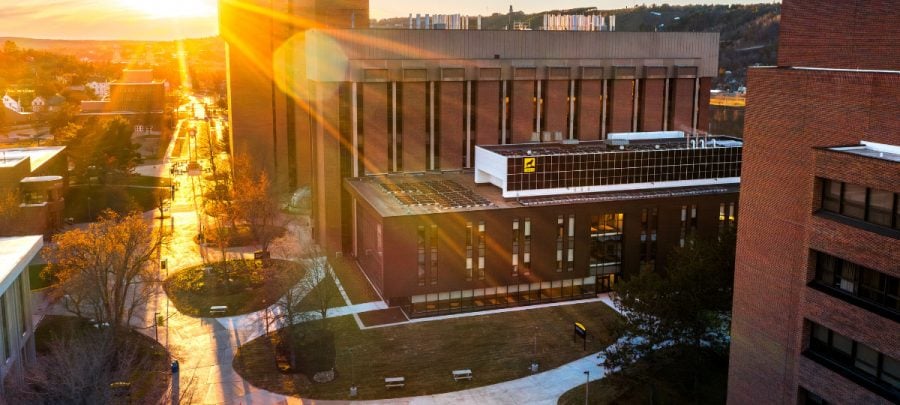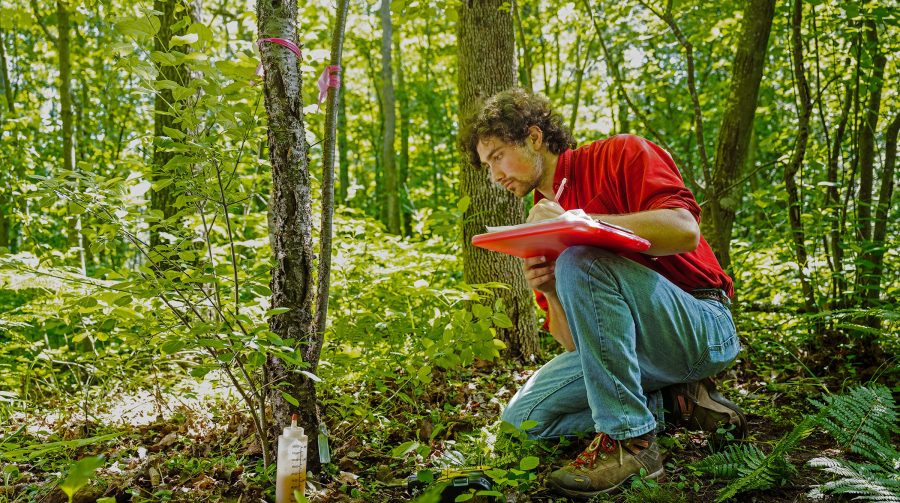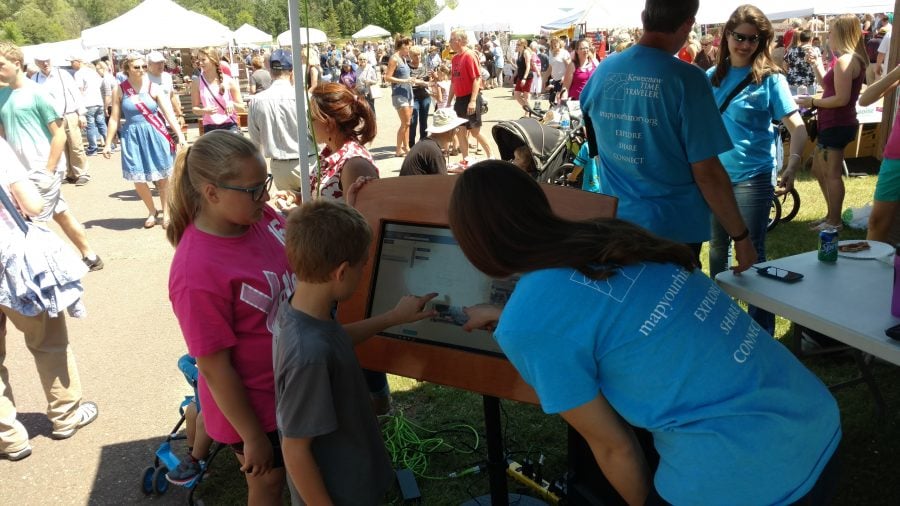The College of Sciences and Arts announces nine new faculty appointments for this academic year. These faculty bring a wide variety of knowledge and skills to the College, our students, and our research. Their individual areas of expertise include dark-room photography, photonics characterization techniques, human-AI interactions, political science and jazz history. Please join us in welcoming these Huskies to their new positions!
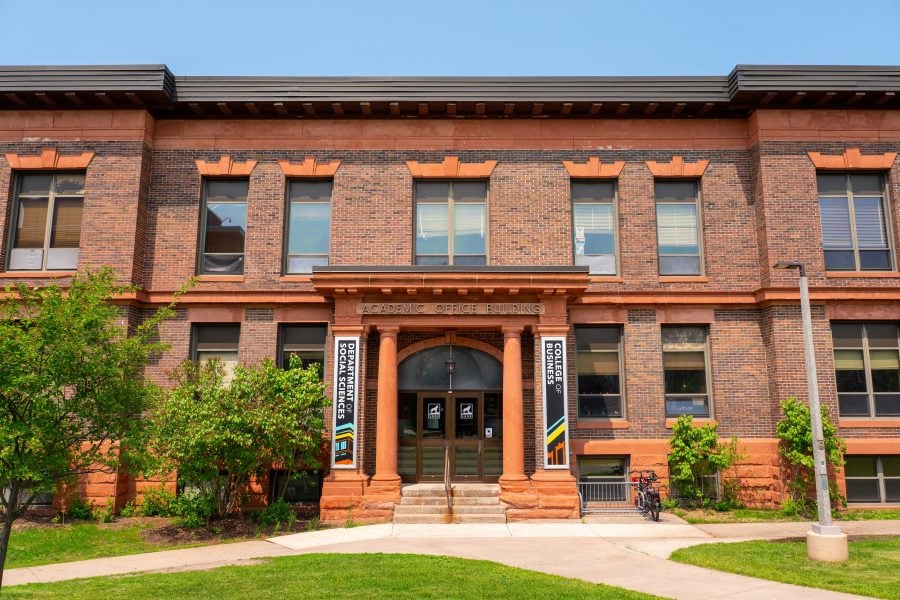
Mark Rhodes, associate professor of geography in Tech’s social sciences department, is one of two scholars selected as a 2025-26 Fulbright US Scholar within the Fulbright-Schuman European Union Affairs Program.
Rhodes’s research leverages Michigan Tech’s unique focus on industrial heritage and archaeology and environmental and energy policy to understand the policy process behind Europe’s industrial heritage. Tech offers the world’s only industrial heritage and archaeology PhD program in the world.
“So many communities around the world, including those in our own back yard and where I’m from in the Illinois Rust Belt, are struggling to navigate deindustrialization,” said Rhodes. “Europe seems to have gotten much more creative in how to not only continue sustainable industrial production but use those former facilities in innovative ways that preserve communities and economic livelihoods.”
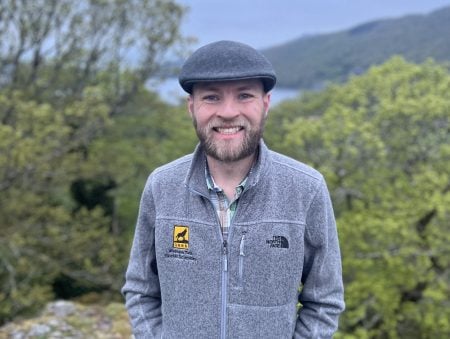
Mark Rhodes is spending six months continuing his work on European heritage site policies, designation, and narratives.
Rhodes noted that Europe, known as one of the first regions in the world to begin a shift away from extractive and manufacturing economic activities, has also been a global leader in preserving, interpreting, and managing difficult cultural and economic transitions. Europe has 48 industrial World Heritage Sites, as designated by UNESCO, the United Nations Educational, Scientific and Cultural Organization. In addition, the European Route of Industrial Heritage connects more than 2,400 individual sites. Rhodes’s work explores how EU policy shapes the relationships and laws impacting site designation and narrative, along with understanding how the two are interconnected. His research—spanning the EU—combines in-depth interviews, archival work, and institutional analysis to better understand and inform industrial heritage best practices.
He’ll spend six months in Halle, Germany, hosted by Martin Luther University’s Center for Interdisciplinary Area Studies and Institute of Geosciences and Geography. The Fulbright-Schuman Program, is administered by the Fulbright Commission in Belgium, is jointly financed by the US Department of State and the European Union’s (EU) European Commission. The fellowship aims to strengthen international relations between the US and EU by supporting policymakers and scholars focused on US-EU relations, EU Policy, or EU institutions.
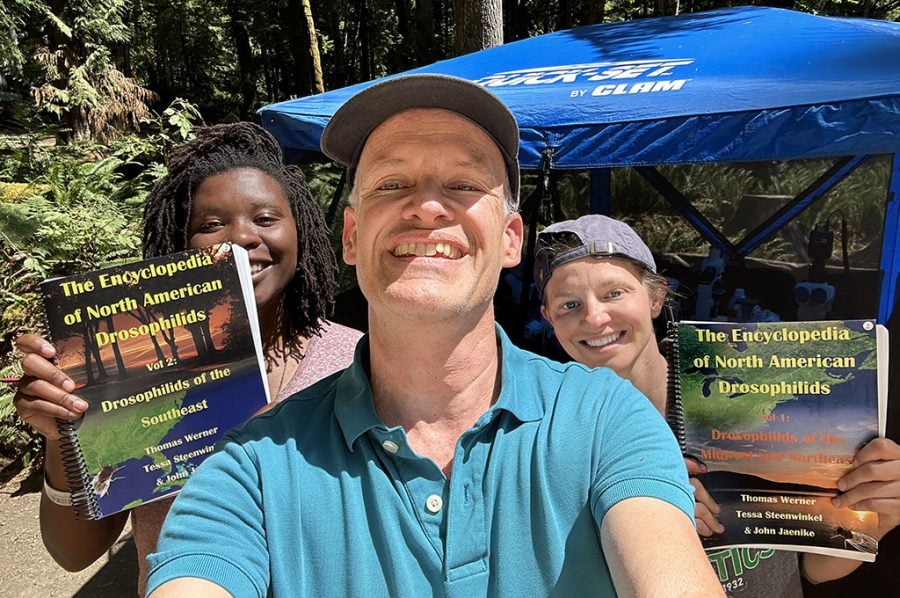
Thomas Werner, a North American fruit fly expert, entomologist and biological sciences professor of genetics and developmental biology is celebrating the release of his latest volume documenting fruit flies across the continent—and Huskies are invited.

Nyasha Milanzi wasn’t entirely surprised to win the Rising Black Scientists Award. She had a feeling. And she’d worked hard on her application.
“This is probably coincidental, but I actually wrote in my diary that I was going to win the prize after I submitted it,” said the graduate research assistant, who is slated to receive her master’s degree in sustainable communities this year. “I felt my essay was well written and thought I was going to win the prize, so I wrote it down.”
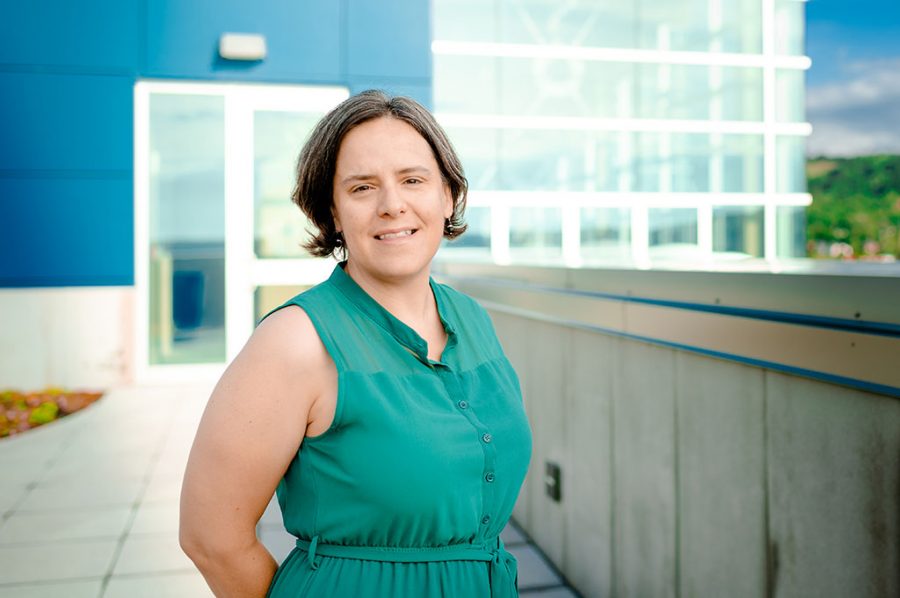
Biological Sciences professor Amy Marcarelli is the proud co-editor of recently published Foundations of Stream and River Ecology: A Guide to the Classic Literature. The book is a continuation of the University of Chicago Press Foundations of series, which began with the first publication of Foundations of Ecology over 30 years ago. The series had temporarily lapsed in publications as resources for academic papers shifted to digital availability, but has been brought back with a new perspective in this latest addition.
Previous editions in the series reprinted academic research papers in their entirety, with a brief introduction explaining the editors’ reason for including those particular papers. The goal, Marcarelli said, was to get these foundational papers into the hands of graduate students and others exploring a new field. Now that academic papers are more readily available online, Marcarelli and her co-editors took a different approach with their compilation.
“If you don’t know the original literature you run the risk of reinventing the wheel.”
The book is designed to not only refer researchers to classic literature in the field, but to provide additional context to each paper’s place in the history of stream and river ecology. Instead of fully reprinting each paper, the book is presented as an annotated bibliography with summaries of each paper, and a “looking forward” section highlighting changes to the field after those papers were published.
This book is also the first comprehensive work of its kind in the relatively new field of stream and river ecology. While most established labs and courses have a recommended reading list passed down by mentors, Marcarelli said this is the first compilation published with additional context for those papers. Most papers included in the book were published before the 2000s, which was an intentional reaction to the modern landscape of digital research paper databases.
“When students go to do research there is sort of a sense that newer papers are better or sometimes it is more difficult to find older papers,” said Marcarelli, “Some of those indexes don’t go much before the mid-80s or they have poor coverage of papers before then.”
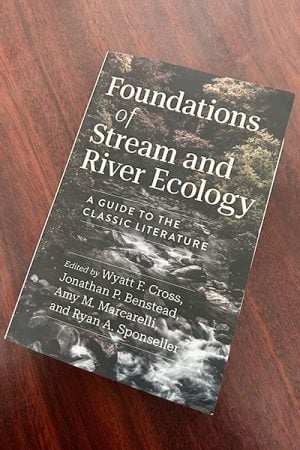
Marcarelli and her co-editors have found many seeds of unexplored ideas and unanswered questions still exist within older, classic papers and wanted to bring them to students’ attention.
“A lot of those early papers have a lot in them, and they get cited for one thing but there is so much more material and ideas embedded in those. Things that in our current, concise, very focused scientific writing style we don’t include in our modern papers but they are certainly there in the older papers,” said Marcarelli.
Marcarelli was invited to the project by her long-time colleague and lead editor Wyatt F. Cross. While she has never done research directly with Cross or her other co-editors, Jonathan P. Benstead and Ryan A. Sponseller, they have all collaborated in their shared field for many years and are members of the Society for Freshwater Science. The project was created with editors from a variety of backgrounds to provide additional perspectives, and that intentionality carried over to discussions of diversity when editing the book.
One of Marcarelli’s major contributions to the book was reconciling who did the research behind each paper and why, as well as who may have been excluded from the table in the past.
“You can’t discount the work that was done in the past because it was done in a culture where some people had opportunities and some didn’t, but you also have to be careful not to exacerbate past sins, for lack of a better word,” said Marcarelli.
Though Marcarelli said stream and river ecology has had key female leaders since the 1970s, representation in the field has still been predominantly male and white. Editors focused especially on highlighting diverse voices of up and coming researchers in the book’s “looking forward” sections. Their journey to encourage diversity in the field is expressed in greater detail in the book’s forward and epilogue.
“We talked a lot about not just paying attention to things like citation count. Thinking about where there might be papers by groups or people that maybe haven’t been recognized as as important as they should be and trying to highlight those where possible,” she said, “not just thinking about gender diversity, but also about geographic diversity.”
Copies can be purchased through The University of Chicago Press. Marcarelli also plans to make copies available in the J. Robert Van Pelt and John and Ruanne Opie Library as well once they have been shipped to her.
About the College of Sciences and Arts
The College of Sciences and Arts is a global center of academic excellence in the sciences, humanities, and arts for a technological world. Our teacher-scholar model is a foundation for experiential learning, innovative research and scholarship, and civic leadership. The College offers 33 bachelor’s degrees in biological sciences, chemistry, humanities, kinesiology and Integrative physiology, mathematical sciences, physics, psychology and human factors, social sciences, and visual and performing arts. We are home to Michigan Tech’s pre-health professions and ROTC programs. The College offers 25 graduate degrees and certificates. We conduct approximately $12 million in externally funded research in health and wellness, sustainability and resiliency, and the human-technology frontier.
Follow the College on Facebook, Instagram, LinkedIn, X and the CSA blog. Questions? Contact us at csa@mtu.edu.
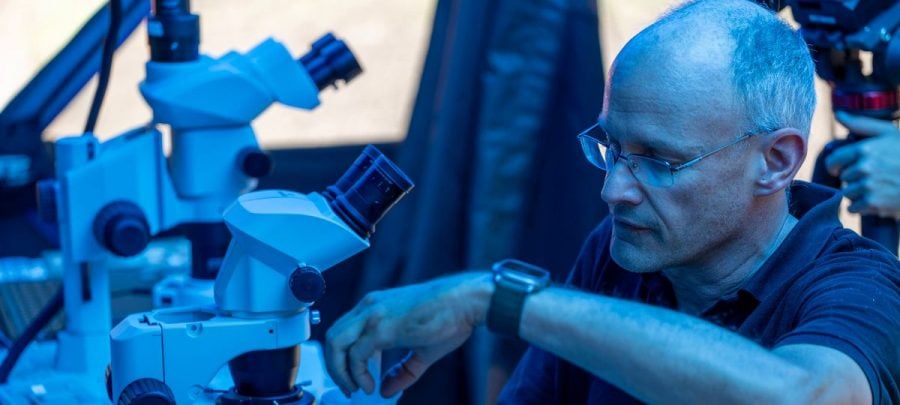
How do you capture microscopic images of miniscule fruit flies when you’re 3,000 miles away from the lab? Grab some popcorn and kick back in the Van Pelt and Opie Library at Michigan Tech to find out.
All the Little Things, a new documentary film featuring the work of genetics and developmental biology professor Thomas Werner will be screened at 2 p.m. on Wednesday, Jan. 22. A Q&A will follow the 40-minute film. Admission is free, the public is invited, and yes, popcorn will be served.
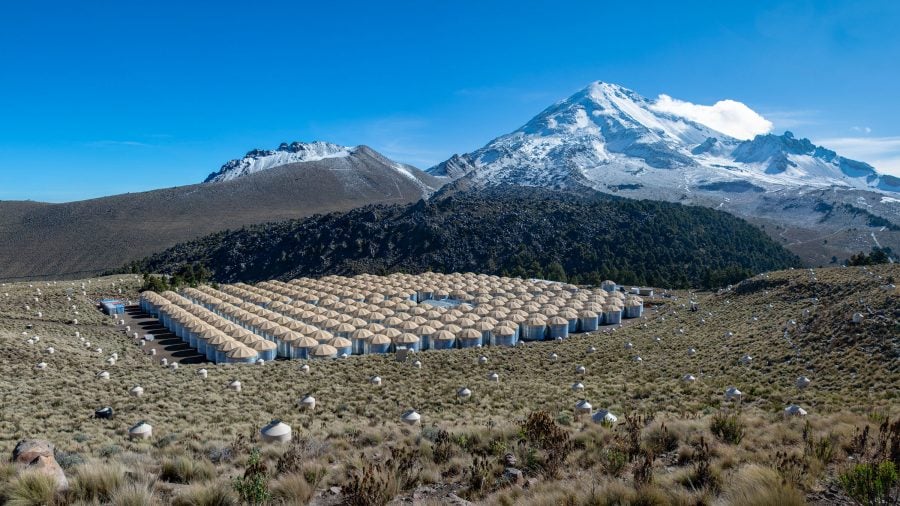
When postdoctoral scholar Xiaojie Wang of the Michigan Technological University Physics Department went looking for her next research topic, she found a previously unexplored region and a path to publication.
Wang is lead corresponding author of the article, “Ultra-High-Energy Gamma-Ray Bubble around Microquasar V4641 Sgr” recently published in Nature journal. The findings highlighted in the article offer new insights into how microquasars might contribute to the cosmic-ray energy spectrum—a long-standing puzzle in astrophysics.
“While reviewing the sky maps in search of my next project, I noticed a region five degrees away from our galactic plane with bright emissions that had not been visible in previous datasets,” said Wang, who works with Petra Huentemeyer, a distinguished professor of physics at Michigan Tech. “No gamma-ray source has been identified nor analyzed in this region—so I seized the opportunity and led the analysis.”
Michigan Tech undergraduate researcher Abe Stone has been garnering headlines for his work. The ecology and evolutionary biology major demonstrates the adage that science isn’t done until it’s communicated. He also illustrates how the Summer Undergraduate Research Fellowship program helps students conduct impactful interdisciplinary research.
Stone was most recently quoted by The Cool Down in a story about SuperPurp, his unconventional fungus-based treatment aimed at controlling the spread of invasive buckthorn trees that threaten to engulf forest landscapes in the Midwest. The story referenced the research’s debut on Michigan Tech’s Unscripted Research Blog, and was picked up by Yahoo! News. Stone was also interviewed by ABC-10 in Marquette.
Stone was a guest on the Mushroom Revival podcast in June to talk about his research journey to Michigan Tech, where he worked to develop a sprayable fungus as a more efficient way to propagate chondrostereum purpureum, the pathogen that causes silverleaf disease in trees. Nicknamed SuperPurp and developed in the College of Forest Resources and Environmental Science’s forest microbiology lab, it’s a locally sourced chemical-free alternative to control buckthorn that could help to slow the spread of invasive buckthorn without harming nearby species.
An advanced institute in the spatial and digital humanities is coming to Michigan Tech.
Don Lafreniere, a professor of geography and geographic information science (GIS) in Tech’s Department of Social Sciences is leading a team of researchers, staff, and students from Michigan Tech and Wayne State University on project that will develop the National Endowment for the Humanities (NEH) Community Deep Mapping Institute. The project is supported by a $250,000 NEH grant.
